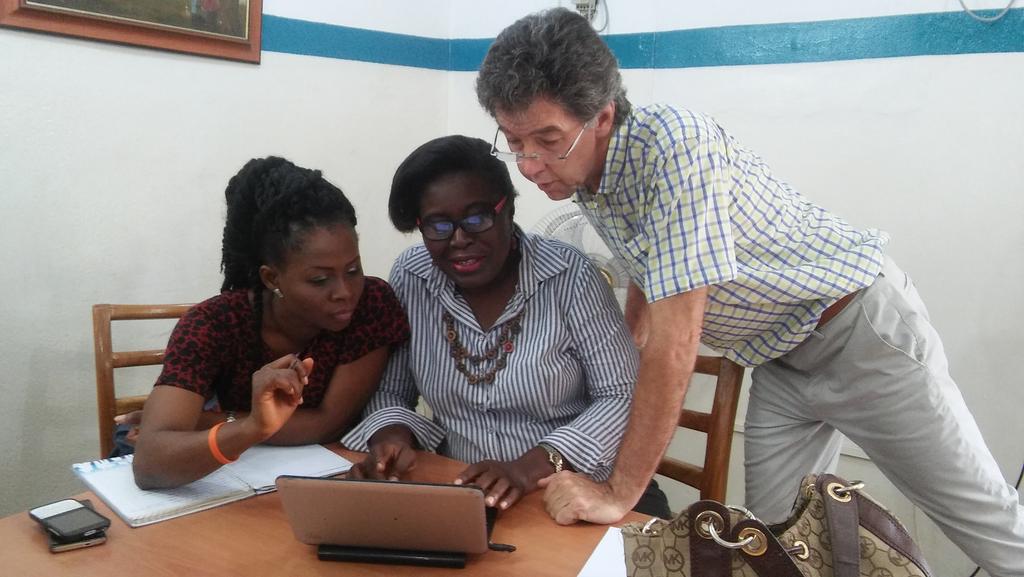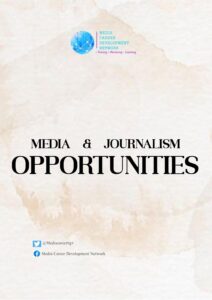Lekan Otufodunrin, Media career development specialist writes on how easily develop a bank for story ideas
One of the errands interns are frequently sent in a media house I used to work, is helping to withdraw or deposit money in banks. When I asked one of them how many banks she has been to, she excitedly said at least five.
“So, you can write a story about your experience in different banks? You can compare the services offered by the banks and tell readers which ones have better customer services? “I suggested.
“How about writing an online story on what customers should know about their banks?” I continued as the intern stared at me, looking amused as I kept bombarding her with story ideas about the banks she had visited on errands.
“No, Editor, I don’t know if I can. It never occurred to me that I will be asked to write a story about what I see in the banks,” she replied, apparently feeling uncomfortable by the embarrassment of having to own up to not having a nose for news in the presence of other staff.
“But Sir” she braced up to tell me what many other reporters have always accused me of. “You seem to be able to come up with one story idea or the other from virtually everything one does.”
My answer to her was an emphatic Yes. After more than thirty years of being a journalist, I should have no problem seeing the story in every situation.
A good journalist should be able to see, hear and smell story ideas.
Everything we do, see around us, hear and read can give us a story idea.
It could take time to perfect the ideas to the level acceptable to editors, but reporters don’t always have to think too hard to get one.
Rick Bragg, Pulitzer Prize winner and former Southern Bureau Chief for the New York Times confirmed in his autobiography how our everyday existence can provide us with ideas of stories to write.
“To say I search for stories would be a lie. I did not have to search; ( life) hurled stories at me you like Nolan Ryan throws fastballs. All you had to do was catch them,” he said.
Agreed that getting good story ideas may not be as simple as Bragg and I want to make it appear, here are some steps to consider to reduce the headache of coming up with story ideas.
Read widely
Whether for your beat or general coverage, one way to easily get story ideas is to read widely, not only your newspaper, magazine, radio, television or online platform where you work but that of other journalists locally and globally. If you are not sufficiently informed about the latest developments on any issue, you may not be able to have new angles to report on.
You need to know what has been reported to avoid suggesting stale story ideas.
Journalists who don’t read newspapers daily, hard copy or online editions or listen to broadcast stations, will always find it hard to come up with current story ideas.
Story ideas can also come from advertisements.
Apart from newspapers, read books, journals and as many printed works that can inform and educate you on issues to write on.
A state correspondent recently sent me a story about the launch of a book by Nobel Laureate Professor Wole Soyinka. In his remarks, Professor Soyinka said the book was informed by the lies many people have told him over the years.
The story the reporter sent did not include the lies. I had to ask him to read overnight the copy of the book, after which he came up with a bigger story titled The lies Daniels, others told me.
Some of the journals and documents we collect from assignments contain more stories thank we think. The only way to find them is to read the hidden details.
See the gaps and do follow up
More than two sides, there are usually many sides to a story. When you read published reports, be alert to see aspects not covered. The uncovered angles may turn out to be a bigger story than the one published.
Many questions are usually left unanswered in many reports that you need to identify them and do a follow-up story. Read major interviews and note unasked follow up questions that you can ask if you get a chance to interview the person interviewed.
READ ALSO: JOURNALISTS MUST MASTER STORYTELLING, ENGAGEMENTS – OBE
Some stories may give you a lead to work on but you can’t if you don’t carefully read them.
One of the best stories I published when I was Sunday Editor of The Nation was a follow up on a story about a new television series in the United Kingdom which I read in a London based newspaper.
One of the editions of the programme on people who died and have been buried without a trace of their families mentioned a Nigerian name.
All I did was to have the story rewritten from the Nigerian angle and the family of the deceased in Ibadan who didn’t know of his whereabouts called to say he was their ‘lost’ son.
A major front-page story with pictures and letters of the deceased was published after my former Assistant Editor, Eni Akinsola visited the family in Ibadan.
Listen to the radio and watch television
Driving to the office recently, I was listening to a radio programme which gave me a major story idea. The next Tuesday was to be the International Women’s Day and the presenter spoke about various unique ways to mark the Day to celebrate outstanding women.
I came up with a story idea about women in journalism that have occupied all major top positions in the profession. Ideas can occur to you anytime. I had to find a paper to write down the women in media story idea when we were stopped by the traffic light. It’s easy to forget a story idea if you don’t write it down or note it in your phone or tab.
Localize global ideas
Have you read a foreign story or watched a documentary that is similar to what you know happens in your country? That is a story idea to think about and explore how it can be written from a local angle.
You don’t need to try too hard to find a foreign story idea to localize. All you need to do, for example, is sign in to your email account like Yahoo and you will find many Yahoo stories to choose from. On the day I wrote this piece I found a story titled The sexiest women of 2016 (so far). The Nigerian version of this story titled Nigerian sexiest women of 2016 will make interesting reading for those who read such stories.
Know major anniversary days
Anniversaries of major events; birth and death days of top personalities, historical incidents, and others should be known by journalists either to recall the incidents in an interesting way or find new developments that may be of interest to the readers or listeners.
The 40th anniversary of the death of former Head of State, Murtala Mohammed was recently celebrated and it was an opportunity to unearth some untold stories about the incident and educate the youths who may not know who Murtala was.
Be attentive to what you hear
Most stories don’t come from official sources. They sometimes come from the unexpected quarters or by people who don’t know that what they are telling you is a major story idea.
You may miss the story idea if you are not attentive and ask some questions, where possible, to get a good understanding of the issue.
Check trending stories online
One of the ways I spend quality time online is to pay attention to trends and posts I can turn to a story. Twitter trends usually show on the right side of the page. Click and check why the topic is trending and extract what you can write about. I once saw that Covenant University in Nigeria was trending on Twitter and when I checked it was about recollections of the students about what happened during the Chapel time. I wrote a report titled Amusing Chapel Memories of Covenant University Students. One of them wrote: Like when the Pastor says finally and he is still preaching for the next 20 minutes!
How about details people share about themselves that can suggest stories you can write about them or use as a peg for a story.
Ask your colleagues or seniors
Your colleagues or seniors on the job may know of a story idea which you can work on. Don’t hesitate to ask them, especially when you are experiencing ‘mental block’ and can’t just think of a story idea for your next editorial meeting.
They may not have a story idea when you ask them, but tell them to always inform you when any occurs to them or they stumble on any.
When a particular young journalist asks when she can come and see me, I know she is coming to ask for story ideas I have for her.
You may also discuss your story ideas with your colleagues to be sure it is good enough to pitch to editors.





